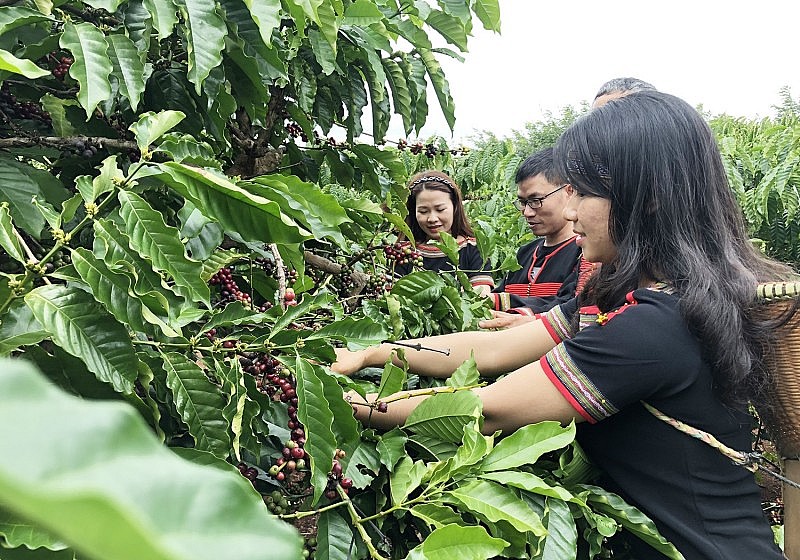According to congthuong.vn
According to Ministry of Agriculture Agriculture and Rural DevelopmentIn the first 8 months of 2024, Vietnam exported 1.05 million tons of coffee with a turnover of 4.03 billion USD, down 11.9% in volume but up 36.1% in value.
Price export coffee export reached 3,805 USD/ton, up 54.5% over the same period.
 |
| Vietnam’s coffee export prices skyrocket (Photo: VNA) |
Experts say that the recent record increase in Vietnam’s coffee export prices is due to the scarcity of global supply. In the 2023-2024 crop year, drought and pests have caused the Central Highlands coffee output, the country’s key growing region, to decrease by 20% compared to the previous crop year. Despite the crop failure and reduced output, the high price of coffee has made farmers, businesses, and the coffee industry excited to reap outstanding value.
Currently, major markets such as Europe, the US, Japan, Israel, China… are increasing their purchases of this agricultural product, causing import prices to these markets to increase by about 30% compared to 2023. Typically, in early July 2024, Hungary bought coffee from Vietnam at an average price of more than 6,800 USD/ton, or Israel bought at 6,100 USD/ton.
In the context of the coffee industry facing a serious shortage of supply, many businesses in the Central Highlands have proactively strengthened their links with farmers in the raw material areas to strictly follow the production process, to improve product quality. This has helped increase exports to markets around the world.
Mr. Thai Nhu Hiep – Director of Vinh Hiep Company, Gia Lai said that the total export output of Vietnamese coffee in the same period last year decreased by nearly 20%, but the added value increased by nearly 42%.
This year, coffee exports are expected to exceed $5 billion, possibly even reaching $6 billion, the highest level in history.
However, opportunities also come with challenges. Therefore, the Central Highlands provinces are stepping up support for farmers to expand internationally certified areas, along with increasingly strong chains of links, to increase the export value of the country’s key agricultural products.
The Central Highlands provinces also determined not to expand coffee growing areas, but to focus on improving quality, promoting the building and development of product brands. At the same time, implementing solutions to ensure sustainability for the coffee supply chain in the area.
The Vietnam Coffee and Cocoa Association stated that for the remaining coffee area, we must replant to find new varieties as well as replant to increase crop productivity. The Vietnamese coffee industry must change, including production, processing and export, all in the direction of green development.
